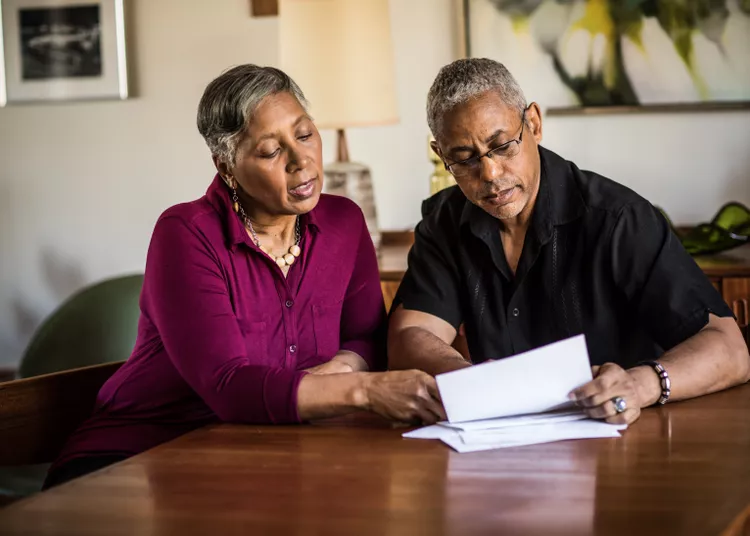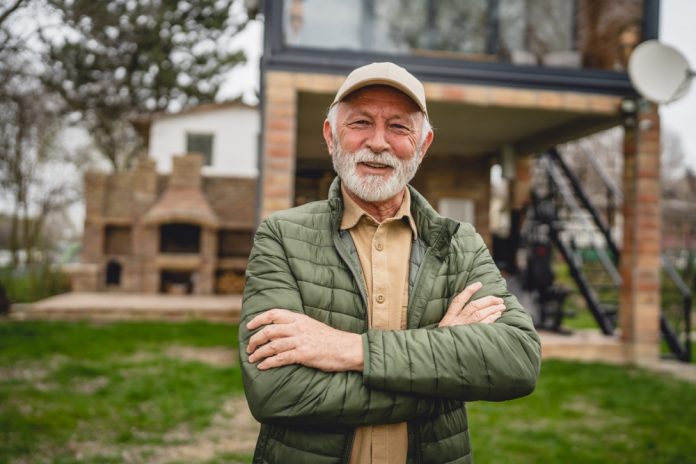The other day I got a call from a nonagenarian widower family friend, living in Avanashi, a rural town based in Tamil Nadu, seeking my advice relating to his one-bedroom apartment in a six decades old society in the swanky Warden Road area of Mumbai. Apparently, he had mortgaged it to a bank for a temporary loan years ago to finance his business. As luck would have it, his business went downhill due to intense competition and crashing prices and he was unable to repay his loan. He had to shift out from the city to his place of birth where he had his ancestral home and lead a spartan life.
He had been used to living well, not ostentatious though, during his heydays. He and his wife were well meaning folks who would often drop into our home and spend time with our parents and us in our growing up days. He was one of the earliest clients of my father who was a practising CA and where I got my grounding in the world of finance and law. He had migrated to the big city with a dream and had built up a trading business in steel and was doing quite well. He was highly leveraged and used to fund his business from borrowings and repay from future earnings and cash flows of the business. He liked driving and used to buy the latest models of Ambassadors and Fiats of the hoary times. He would buy the latest car, use it for a maximum of three years (the tenor of the car loan that he invariably took) and then sell it only to buy the latest model. He liked his cars to be in tip-top condition and did not believe in owning them to become costly relics eventually. They did not have any children. About a quarter century ago, his wife had passed, but the stoic in him carried him through his ‘single’ stage with all its ups and downs.
His concern was that the outstanding loan of the past had ballooned to a huge outstanding amount, practically accounting for 75% of the current value of his small apartment. The bank had been badgering him for the repayment, but he had no cash flows to do that, given his stretched times. The current value was quite beaten down due to the age of the property and the proliferation of housing in Mumbai. He was ruing the low valuation of his apartment and was brainstorming with me about the best course of action. He had rented out his apartment for modest rent which was helpful somewhat, but nowhere close to funding repayment of the loan. After all, the rental yield on properties is very meagre at 2 or 3% whereas loan against property is an expensive proposition at upwards of 10% in the worst of times. I quite simply asked him, given his current situation and the remote possibility of him ever returning to Mumbai, to immediately sell his flat to any takers within the building society or outside of it, at whatever best possible price and close out the loan. The cost of waiting would only stress him further, both mentally and monetarily. After all, Lord Yama may send him an invitation any time soon. He was sardonic, but realised that it made practical sense at this stage of his life. I helped him set the wheel in motion and he should soon be extricating himself from his situation and be cash flow positive.
This incident veered my thoughts to the many senior citizens that I know or have come across. Very few senior citizens are well off or have a handsome regular cash flow or have a supportive family system. Majority of them manage their monthly needs through some fixed deposit or bond interest or pension. These incomes, by their nature, can be nowhere near one’s last drawn salary, except for the few fortunate ones who were in senior positions in private sector or in government service or in political sphere enjoying permanent sinecure. Given the increasing life expectancy and inflation, it will be a matter of time before the mismatch of inflows and outflows set in, adding to the woes of daily living. Their current inflows may no longer enable them to ‘live happily ever after’ that finance and insurance companies beguiling hold forth and chase their retirement corpus. Many will be forced to look for additional cash flows to manage a respectable living. The absence of any social security net worth the name only compounds the problem.
When faced with such a situation, the home that many senior citizens would have can come to the rescue. All it would need is a significant shift in thinking while being grounded in reality. There is a loan product, offered by most banks, called Reverse Mortgage. This facility allows a senior citizen (above the age of 60 in India; in some other countries it could be some other threshold like 62), owning a home to enhance their monthly income by borrowing against it without having to sell it or repay monthly, while ensuring the mental peace and security of a roof over the head.

Broadly, the bank will have the property inspected and evaluated. Based on the valuation, the bank will decide on the maximum amount that one can receive as a reverse mortgage facility. Banks may offer a facility in the range of 60% to 80% of the determined value and the maximum amount offered may be in the range of Rs.1 crore to Rs. 2 crores. Some aggressive private banks may have higher caps on the amount. The tenor usually is 15 to twenty years depending on the age of the borrower. The amount sanctioned, after deducting the estimated amount of interest, is divided into monthly instalments and will be paid over the tenor of the loan. The interest rate tends to be higher as compared to a housing loan. Typically, the bank will charge on the basis of RBI Repo rate + spread + margin. These will vary from time to time, the reason why some banks may offer a fixed or a floating rate, depending on the RBI Repo rate and spread. If a housing loan is available at 9%, for a reverse mortgage the bank may charge in the range of 11% to 12 %. Generally, the banks prefer to pay monthly payments over the tenor period, and discourage lump sum payments to protect the senior citizens from imprudent use or loss or fraudsters. To avail the facility, the usual documents like age and residence proofs, income tax filings, bank statements, agreement, promissory notes, etc. will be involved. These are procedural and have to be complied with.

To illustrate, if the eligibility amount is Rs. 1 core and the estimated interest over the tenor is Rs. 50 lakhs (it will include interest on interest component as well, since no repayments are required during the tenor) and tenor is 15 years, the bank will disburse a monthly amount of Rs. 27,778 (Rs. 50 lakhs /180 months). After the tenor, the senior citizen can continue to live in his home for as long as he or his spouse is alive, without repaying Rs. 1 crore or the interest accruing on it. On the demise of the borrower, the heirs will have an option to pay the outstanding amount and retake/sell the property or the bank can sell the property and pay the balance amount to the heirs. In case the senior citizen or her/his spouse passes during the tenor, a similar step for repayment will be followed by the bank to recover its dues.
Any senior citizen facing difficulties managing with the existing monthly incomes, will do well to look at reverse mortgage as a practical option. After all, the purpose of life is to live well and happy in their lifetime and no one can take his or her property to the world of Lord Yama. Why reverse the sunset moments?








